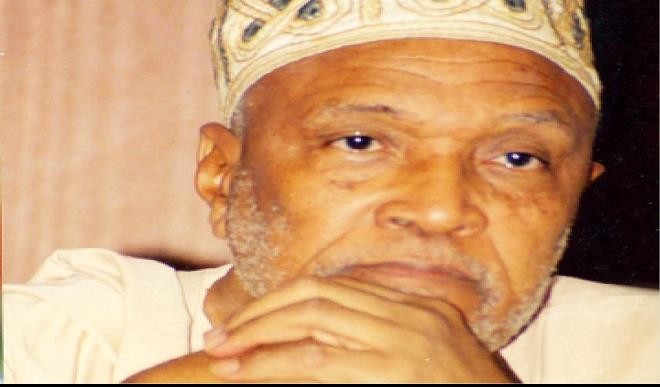Latest News
How MD Yusufu and Hassan Katsina Tried to Save June 12

By Ayo Opadokun
Katsina Times
By the time of the June 12, 1993 elections, Nigeria appeared politically and administratively structured to avoid the pitfalls that had marred the 1979 presidential election. The 30 states replaced the disagreeable task of calculating two-thirds of 19 states, and there were two parties instead of five. None of the second Republic presidential contestants featured in the 1993 competition, making it a straightforward contest between the Social Democratic Party (SDP) candidate Bashorun M.K.O Abiola and the National Republican Convention (NRC) candidate Alhaji Bashir Tofa.
However, the election's aftermath proved to be Nigeria’s most complicated political incident. Despite June 12 being in the thick of the rainy season, there was not a single shower throughout Nigeria’s vast landmass. Except for Ogoniland, where indigenes boycotted the polls to protest the occupation of their land by troops protecting oil installations, the elections went peacefully, and international observers later adjudged the election free and fair. Results showed that Abiola won, satisfying the electoral requirements.
MD Yusufu remarked, "Abiola won in the areas where they said he won. He did not rig. People knew him. They virtually trusted him. You cannot compare him with Tofa, whom they did not know. So I was not really interested or bothered about his victory.”
However, Alhaji MD Yusufu soon found himself involved in the political fray in a curious manner. It began two days after the polls. After declaring returns from 14 states, the National Electoral Commission (NEC) suddenly halted announcements. Confusion gripped the nation. Much later, it was understood that orders came from "above" to suspend the election results. For a transition that had cost the nation over N40 billion, not counting the personal costs to the participants, the annulment came as a shock. Abiola himself had bankrolled his ambition with about $120 million.
MD had been at the top echelon of three military governments. Babangida had much earlier shown a penchant for prolonging his stay in power, having run a winding transition program. By 6 a.m. on Monday, June 14, General Hassan Katsina called MD Yusufu from Kaduna, urging him to contact Chief Justice Muhammad Bello to support Abiola’s mandate. Hassan emphasized the importance of a joint statement from notable figures condemning the suspension of results.
MD promptly contacted Justice Bello, who agreed with the plan but advised against using his name publicly due to the judiciary’s need for neutrality. MD then called Dr. Majekodunmi to enlist Yoruba leaders’ support. However, the following day, newspapers carried a statement from General Adeyinka Adebayo condemning the government’s actions, preempting the strategic plan and rendering it ineffective.
A week later, on June 23, General Ibrahim Babangida announced the annulment of the election, ending any hope of reversing the suspension.
This article was culled from the book "Aristocratic Rebel: The Biography of MD Yusufu" by Ayo Opadokun.
Ayo Opadokun was a secretary of NADECO and Afenifere, and the author of "Aristocratic Rebel: The Biography of MD Yusufu" (2007).
Katsina Times
www.katsinatimes.com
Jaridar Taskar Labarai
www.taskarlabarai.com
07043777779, 08057777762

